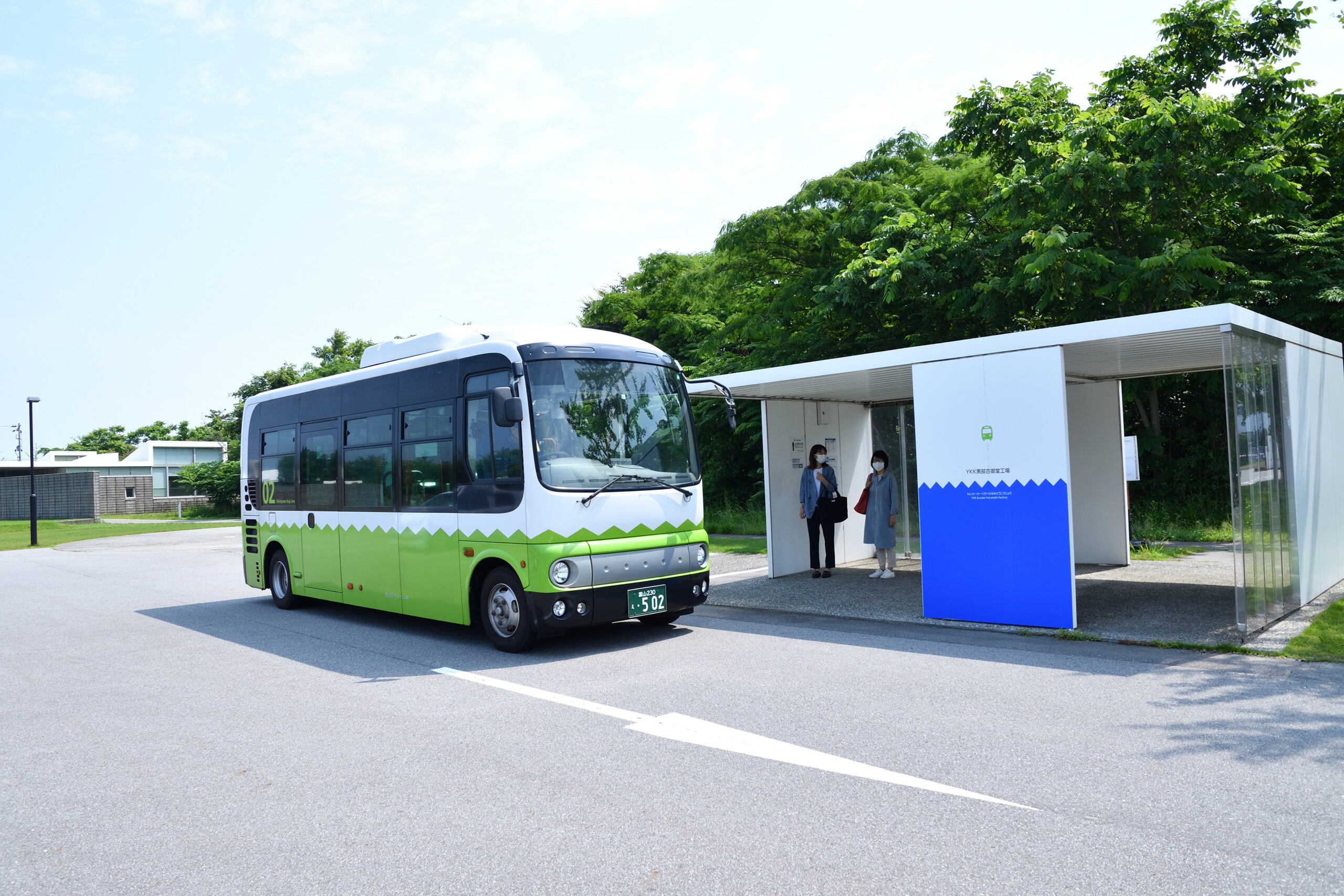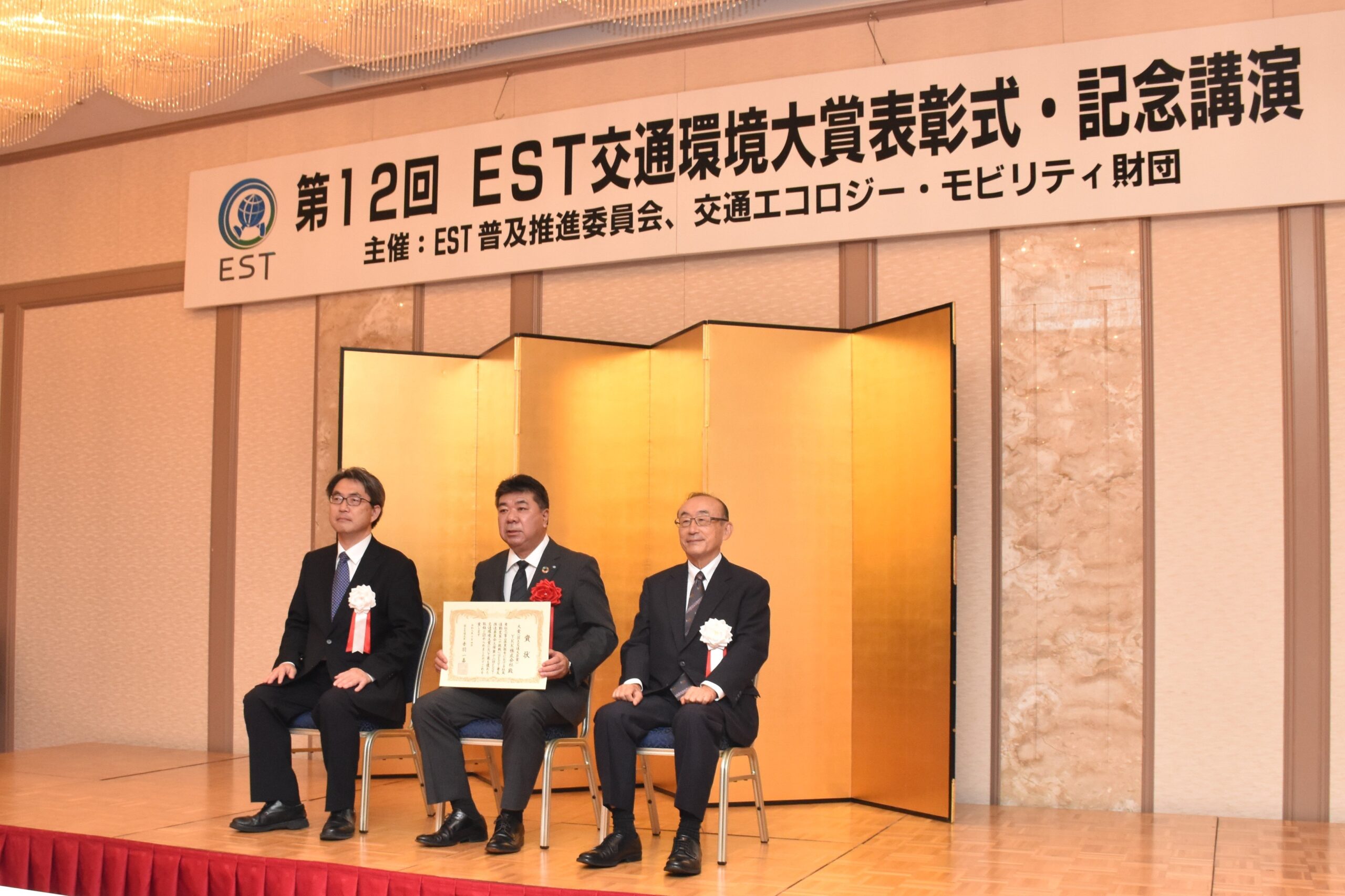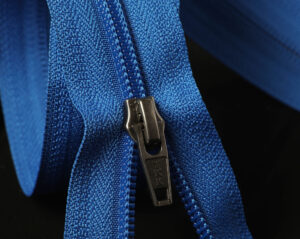YKK Corporation has received the Minister of Land, Infrastructure, Transport and Tourism Award, the grand prize in the 12th EST[1] Transportation Environment Awards. Sponsored by the Foundation for Ecology and Mobility in Transportation (Ecomo Foundation)[2], this award recognized YKK for its public transportation initiatives in Kurobe City, Japan.
Following the 2011 Great East Japan Earthquake, YKK Group began relocating some of its corporate functions from Tokyo to Kurobe, where the company’s production and R&D headquarters are located. By April 2016, approximately 230 employees had relocated. Ninety percent of the 3,300 YKK Group employees living in Kurobe commuted to work by car. Traffic congestion on the roads around the YKK plant in the mornings and evenings and the need to secure parking space had become problematic.
YKK began working with the City of Kurobe and transportation companies to improve local public transportation systems. Main initiatives included:
Establishment of bus service for employees and citizens
In April 2015, YKK began offering bus service for employees to and from the newly opened Kurobe-Unazukionsen Station on the Hokuriku Shinkansen (Bullet Train) Line. In June 2016, it converted the employee bus service to a public bus route serving all citizens of Kurobe. In November 2016, YKK collaborated with local industry, academia, and government to explore demand for a north-south loop route, which was opened in October 2017, serving all local citizens.
Construction of bus stops
In cooperation with Kurobe City, YKK also built new, modern bus stops at multiple YKK facilities throughout the city. In addition to providing covered shelter to wait for buses, the design improved the image of public transportation.
Implementation of electronic fare payment system
A system in which employees can pay bus fare using their employee ID cards was also adopted. YKK pays the bus fare for all employees, so when commuting or riding the bus for business purposes, employees can board the bus and tap their employee ID card against the ID card reader without having to pay out-of-pocket. This makes riding the bus stress-free for users and enables a detailed ridership history (per bus, per stop), which is analyzed and used to improve schedules.
Revision of YKK Employee Commuting Policy
Previously, YKK permitted employees who had difficulty commuting by bus due to poor public transportation options to commute by personal car. After the new bus system was implemented, the company changed its employee policy to urge residents of company housing or dormitories in Kurobe to commute by bus. The only exceptions made are for shift workers, those working reduced hours or flexible/staggered hours, or those whose work requires them to commute outside bus service hours.
Increased the frequency of service and improved service routes
In April 2016, prior to implementation of the new bus system, there were 22 buses per day for employees and zero for citizens. As of December 2020, there were nine buses per day for employees and 38 buses per day for citizens. By doubling the frequency of bus service, YKK was able to increase ridership. Separating employee demand from that of citizens also eased congestion.
Awareness-raising activities
A variety of educational activities to raise awareness of bus routes among employees and citizens were conducted. YKK hosted employee briefings and disseminated circulars and posters to employees, and Kurobe City included the information in its city newsletter, on its website, in newspaper inserts, and offered bus tours for riders to experience using the bus.
Creation of a system to support sustainable bus routes
The Kurobe City Public Transport Strategy Promotion Council was created to manage the bus system, and maintenance expenses are shared by the government and YKK through subsidies and fares.
Outcome
Since 2015, the number of people using bus transportation has increased from approximately 110,000 to 180,000. CO2 emissions were reduced by 229 tons per year through this initiative.
Future Plans
While Phase 1 described above targeted the 3,300 YKK employees living in Kurobe City in company housing and dormitories, Phase 2 will target the 3,700 employees living outside Kurobe City. YKK plans to work with local railroad companies to encourage employees to commute by rail. It will also expand staggered work hours and encourage telecommuting.
“I would like to express my heartfelt congratulations to YKK for winning the EST Transportation Environment Award,” said Hisayoshi Ohno, Mayor of Kurobe City. “I would also like to express my deepest respect and gratitude to all the employees for their contributions in promoting the use of public transportation through commuting to and from work by bus and for playing a leading role in urban development. The fare payment system using employee ID cards and conversion from car commuting to bus commuting were highly evaluated for this award, and I am very proud of these nation-leading efforts. I am confident that they will take root as a new form of regional contribution. On March 31, 2021, Kurobe City celebrated the 15TH anniversary of its establishment as a city. I believe that these activities are indispensable for the development of the city in cooperation with the community. I would like to ask for your continued support for the creation of a healthy, vibrant, and cheerful Kurobe.”
“The YKK Group has approximately 3,300 employees working at its Kurobe Plant who live in Kurobe City, and 90% of them commuted by car,” said Shinichi Asano, Executive Vice President, Kurobe Manufacturing Center, YKK Corporation. “Traffic congestion on the roads around the office in the mornings and evenings has always been an issue but securing transportation within the city for the approximately 230 employees and their families who were transferred from Tokyo and other metropolitan areas due to the partial relocation of the head office functions in April 2016 had also become an important issue. YKK will continue its efforts to create a sustainable society and contribute to local communities.”
The EST Transportation Environment Award was established in 2009 by the EST Promotion Committee with the aim of discovering examples of local transportation environment measures, recognizing outstanding achievements and efforts, and introducing and promoting such measures widely. The 2021 award ceremony was held on October 4.
###
[1] EST (Environmentally Sustainable Transport) is a new policy vision proposed by the OECD (Organization for Economic Cooperation and Development) to formulate and implement transport and environmental policies from a long-term perspective. Visit http://www.estfukyu.jp/ for details (in Japanese).
[2] Ecomo Foundation is a public interest incorporated foundation approved by the Prime Minister of Japan. Its purpose is to promote barrier-free transportation and environmental measures in transportation and related fields and to promote activities aimed at realizing a social environment friendly to people and the earth.



